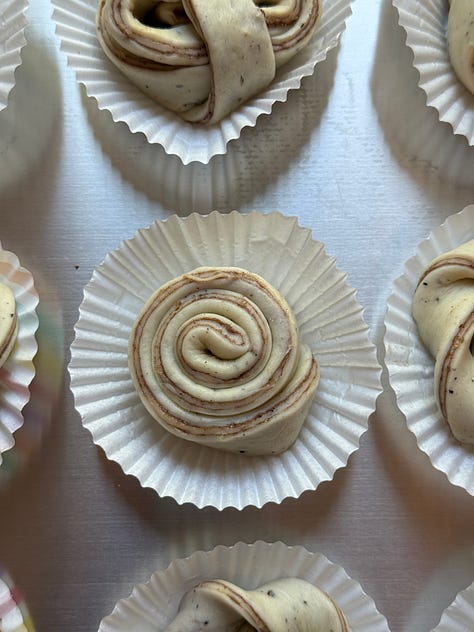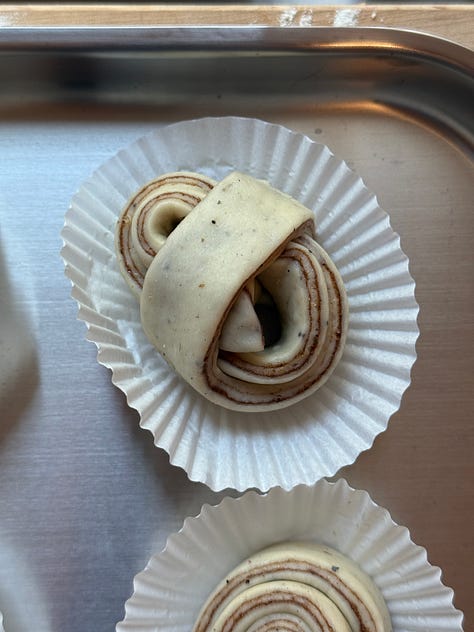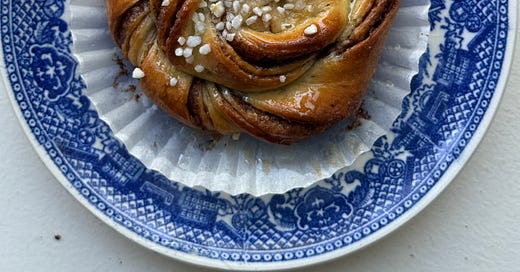If you’re reading this on May 11th–happy Mother’s Day, however that looks to you! I thought a recipe for kanelbullar felt just right today, since it’s probably the thing I remember both my grandma and mom baking the most. And while I love a fluffy, frosting-coated American cinnamon bun, a Swedish kanelbulle will always be my first choice.
A kanelbulle is the Swedish version of a cinnamon bun, often subtly flavored with cardamom and traditionally shaped into a twist or knot. The strands are thin and tender–similar to cardamom buns–and the result is a slightly denser, less sweet treat than its American counterpart. They're usually topped with pearl sugar instead of icing, though you can absolutely skip it if you don’t have any on hand.
I love making the dough the night before and letting it rise slowly in the fridge overnight. It not only deepens the flavor but also makes the chilled dough easier to handle the next morning. This recipe doesn’t require an overnight chill, but it’s a tip worth trying–or, you can chill the dough for 30 minutes to an hour after the first proof if you want to firm it up a bit before shaping.



Tips & tricks
If you’re using active dry instead of instant, activate the yeast first with warm milk. In a small saucepan over low heat, warm the milk and sugar until it reaches 97ºF/36ºC (or body temperature if you don’t have a kitchen thermometer). If it gets too warm, let it cool down before proceeding, as adding hot milk to yeast can kill it. Stir to dissolve the yeast. Let it sit until small bubbles appear on the surface, indicating the yeast has been activated, about 5 minutes. Add the remaining ingredients.
Test to see if the dough is done kneading by doing the stretch/window pane test. If it stretches thinly without tearing, it’s done. If it breaks easily, keep going.
Keep reading with a 7-day free trial
Subscribe to Nea Arentzen to keep reading this post and get 7 days of free access to the full post archives.





